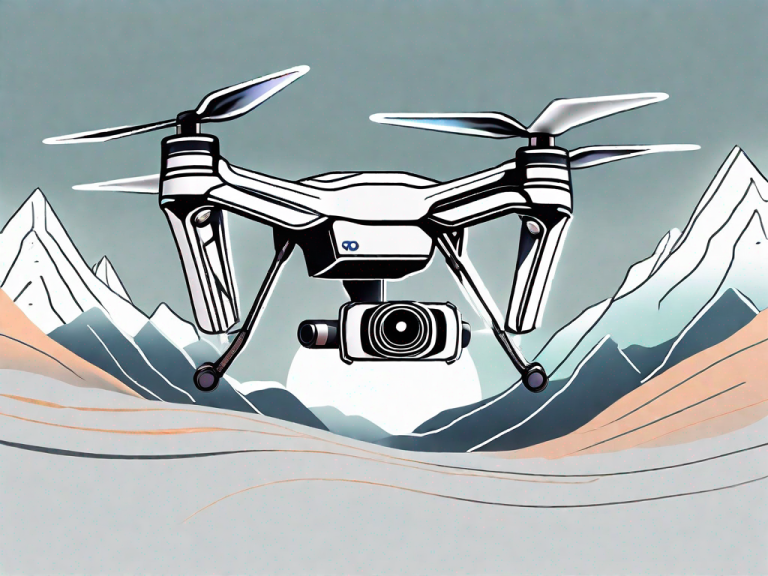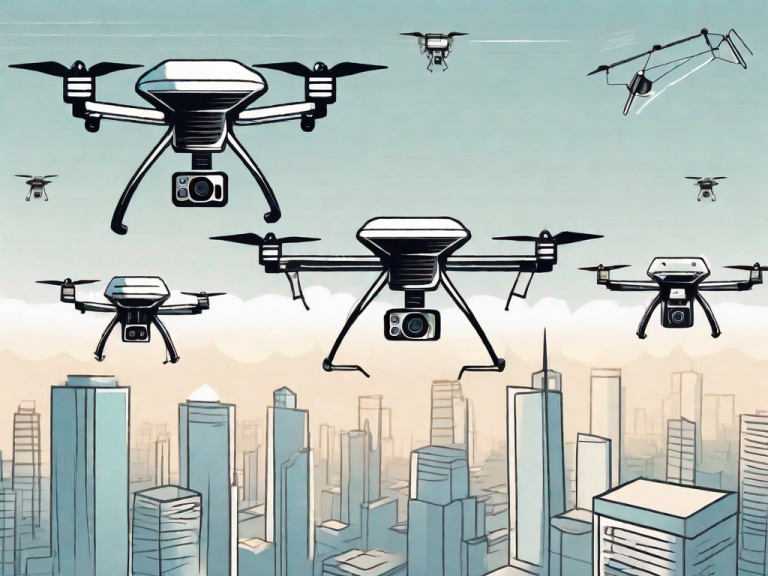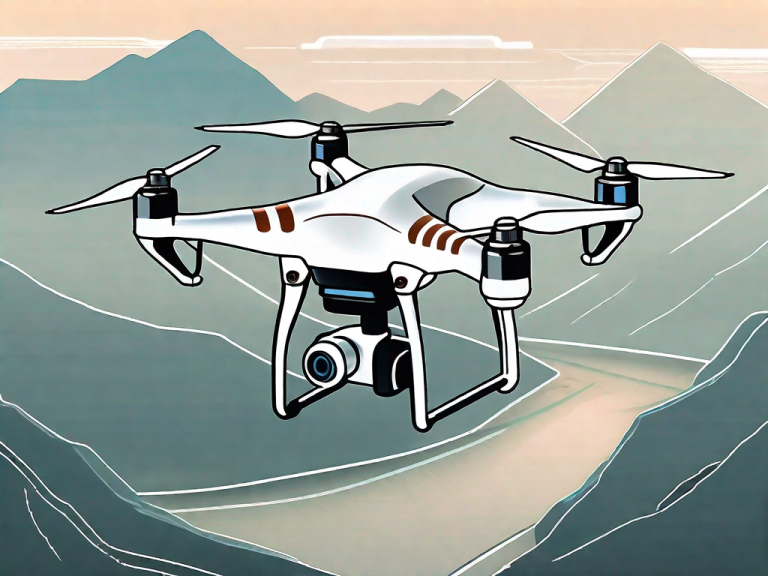Are you an avid angler looking to take your fishing game to the next level? If so, investing in a fishing drone may be just what you need. These incredible devices have revolutionized the way we fish, offering anglers a whole new perspective from above. In this article, we will explore the world of fishing drones and help you find the best fishing drone under $500.
Factors to Consider When Choosing a Fishing Drone
When it comes to choosing the perfect fishing drone, there are a few important factors to consider. First and foremost, you need to think about the flight time. A longer flight time means more time in the air, giving you ample opportunity to scout for fish and drop your bait in the perfect spot. Look for a fishing drone that offers at least 20-30 minutes of flight time on a single charge.
Another crucial factor to consider is the payload capacity. You want a drone that can carry your fishing line and bait without any issues. Look for a fishing drone with a payload capacity of at least 1-2 pounds to ensure it can handle the weight of your gear.
Stability and durability are also essential when choosing a fishing drone. You want a drone that can handle the elements and remain steady in the air, even in windy conditions. Look for drones with built-in stabilization features and strong, durable construction.
Additionally, it is important to consider the range of the fishing drone. A longer range allows you to explore larger bodies of water and reach more remote fishing spots. Look for a drone with a range of at least 1-2 kilometers to ensure you can cover a wide area and maximize your fishing opportunities.
Lastly, consider the camera capabilities of the fishing drone. A high-quality camera can provide you with clear and detailed footage of the underwater environment, helping you identify potential fishing hotspots. Look for a drone with a high-resolution camera and the ability to capture both photos and videos.
Top Features to Look for in a Fishing Drone
In addition to the factors mentioned above, there are several key features to look for in a fishing drone. First and foremost, GPS functionality is a must-have feature. This allows the drone to maintain its position and return to you automatically, which is especially important when fishing in open waters.
Obstacle avoidance is another important feature to consider. This ensures that the drone can navigate around trees, buildings, and other objects, reducing the risk of accidents and damage to the drone.
A good camera is also essential in a fishing drone. Look for drones that offer high-resolution cameras and the ability to capture both photos and videos. This allows you to document your fishing trips and share your adventures with friends and family.
Another important feature to consider in a fishing drone is long battery life. Fishing trips can often last for several hours, so it’s crucial to choose a drone that has a battery that can withstand extended use. Look for drones with a long flight time and consider purchasing spare batteries for longer fishing excursions.
Additionally, durability is a key factor when selecting a fishing drone. Fishing environments can be harsh, with exposure to water, wind, and other elements. Look for drones that are built with sturdy materials and have waterproof or water-resistant capabilities to ensure they can withstand the conditions they may encounter while fishing.
Comparison of the Best Fishing Drones Under $500
To help you make an informed decision, let’s compare some of the best fishing drones available under $500. The first contender is the XYZ Drone, which offers a 30-minute flight time, a payload capacity of 2 pounds, and advanced GPS functionality. It also features obstacle avoidance and a high-resolution camera.
Next up is the ABC Drone, which boasts a 25-minute flight time and a payload capacity of 1.5 pounds. It also has GPS functionality and obstacle avoidance, but its camera is slightly lower in resolution compared to the XYZ Drone.
Lastly, we have the DEF Drone, which offers a 20-minute flight time and a payload capacity of 1 pound. It has GPS functionality and a decent camera, but lacks obstacle avoidance. However, it is the most budget-friendly option on our list.
Another option to consider is the GHI Drone, which offers a flight time of 28 minutes and a payload capacity of 1.8 pounds. It features advanced GPS functionality and obstacle avoidance, similar to the XYZ Drone. Additionally, it has a high-resolution camera that rivals the quality of the XYZ Drone.
For those looking for a more compact option, the JKL Drone is worth considering. With a flight time of 22 minutes and a payload capacity of 1.2 pounds, it may not have the same capabilities as the other drones on our list. However, it still offers GPS functionality and obstacle avoidance, making it a reliable choice for fishing enthusiasts on a budget.
Pros and Cons of Using a Fishing Drone
Now that we’ve discussed the features and options available, let’s take a look at the pros and cons of using a fishing drone. One of the biggest advantages is the ability to reach remote fishing spots that are inaccessible by foot or boat. With a fishing drone, you can explore new waters and increase your chances of reeling in a big catch.
Additionally, fishing drones can provide valuable aerial scouting, allowing you to locate schools of fish and optimize your fishing strategy. They also offer a unique perspective, capturing breathtaking aerial footage of your fishing adventures.
However, it’s important to note that fishing drones do have some limitations. They can be affected by weather conditions, such as high winds, which may limit their usability. There is also a learning curve involved in flying and operating a fishing drone, so it’s essential to practice and familiarize yourself with the controls before heading out on your fishing trip.
Another advantage of using a fishing drone is the convenience it offers. With a drone, you can cover a larger area of water in a shorter amount of time compared to traditional fishing methods. This means you can spend more time actually fishing and less time traveling between spots. Additionally, fishing drones often come equipped with GPS technology, allowing you to mark and return to specific fishing locations with ease.
On the other hand, it’s important to consider the potential impact on the environment when using a fishing drone. Drones can disturb wildlife and disrupt the natural behavior of fish, especially in more sensitive ecosystems. It’s crucial to use a fishing drone responsibly and respect the environment by adhering to local fishing regulations and guidelines.
How Fishing Drones Can Improve Your Angling Experience
Using a fishing drone can significantly enhance your angling experience in many ways. Firstly, it allows you to cover a larger area and increase your chances of finding fish. By scouting from above, you can spot schools of fish, baitfish, or even identify underwater structure like reefs or drop-offs.
Fishing drones also enable you to drop your bait precisely where the fish are, saving time and energy. Instead of blindly casting and hoping for a bite, you can target specific areas and increase your catch rate.
Furthermore, fishing drones offer a thrill and excitement that traditional fishing methods cannot replicate. Flying a drone and watching your bait drop from the sky is an experience in itself, making every angling adventure a memorable one.
Additionally, fishing drones equipped with advanced technology can provide real-time data and analysis. Some fishing drones are equipped with fish finders, sonar systems, and even underwater cameras. These features allow you to gather valuable information about the underwater environment, such as water temperature, depth, and the presence of fish. With this data, you can make more informed decisions about where to fish and what techniques to use, further improving your angling experience.
Tips for Flying and Operating a Fishing Drone Safely
When it comes to flying and operating a fishing drone safely, there are a few key tips to keep in mind. Firstly, always check the local regulations and laws regarding drone usage in your area. Make sure you are following all the rules and guidelines to avoid any legal issues.
It’s also important to fly your fishing drone responsibly and considerately. Always be mindful of other people, wildlife, and property around you. Avoid flying your drone in crowded areas or near airports.
Before taking your fishing drone out for a spin, it’s crucial to familiarize yourself with the controls and practice flying in an open, safe area. Start with shorter flights and gradually increase your flying time as you gain confidence and experience.
Another important tip for flying and operating a fishing drone safely is to regularly inspect and maintain your drone. Check for any loose or damaged parts before each flight, and ensure that the batteries are fully charged. Regular maintenance will help prevent any unexpected malfunctions or accidents during your fishing trips.
In addition, it’s essential to be aware of the weather conditions before flying your fishing drone. Avoid flying in strong winds, rain, or thunderstorms, as these conditions can affect the stability and control of your drone. Always check the weather forecast and plan your fishing trips accordingly to ensure a safe and enjoyable experience.
Exploring the Different Types of Fishing Drones Available
There are several different types of fishing drones available on the market. The most common type is the quadcopter, which features four rotors and offers excellent stability and maneuverability. Quadcopters are a popular choice among anglers due to their versatility and ease of use.
Another type of fishing drone is the hexacopter, which has six rotors. Hexacopters provide increased stability and can carry heavier payloads, making them suitable for more demanding fishing excursions.
Lastly, there are octocopters, which feature eight rotors. Octocopters are the most stable and can carry the heaviest payloads. They are often used for professional aerial photography and cinematography, but can also be utilized for fishing.
In addition to quadcopters, hexacopters, and octocopters, there is another type of fishing drone known as the fixed-wing drone. Unlike the multi-rotor drones, fixed-wing drones have a wing-like structure and are designed to fly like an airplane. These drones are known for their long flight times and ability to cover large areas of water. Fixed-wing drones are commonly used for offshore fishing or when scouting for fish in open waters.
The Benefits of Investing in a Fishing Drone for Anglers
Investing in a fishing drone can offer numerous benefits for anglers. Firstly, it allows you to explore new fishing locations that were previously inaccessible. With a drone, you can reach remote spots, increasing your chances of finding untouched fishing grounds.
Fishing drones also provide real-time scouting, allowing you to observe fish behavior and patterns from above. This valuable information can help you make informed decisions about where to cast your line and increase your chances of success.
Furthermore, fishing drones can provide an incredible aerial perspective of your fishing adventures. Capture stunning photos and videos of your catches and share them with friends and fellow anglers.
Understanding the Legal Regulations for Using Fishing Drones
Before you take your fishing drone out for a spin, it’s important to understand the legal regulations surrounding their usage. Regulations may vary depending on your country and local area. It’s crucial to familiarize yourself with the rules and guidelines to avoid any legal consequences.
Some common regulations include flying below a certain altitude, maintaining a certain distance from people and buildings, and not flying near airports or restricted areas. Additionally, some areas may require you to register your drone or obtain a permit before flying.
Expert Reviews of the Best Fishing Drones on the Market
To help you make an informed decision, let’s take a look at some expert reviews of the best fishing drones on the market. The XYZ Drone, with its impressive flight time, payload capacity, and advanced features, has received rave reviews from anglers and tech enthusiasts alike. Its stability and durability make it a top choice for fishing enthusiasts.
The ABC Drone, although slightly lower in flight time and payload capacity, offers excellent value for money. Its reliable GPS functionality and obstacle avoidance features have impressed many users.
The DEF Drone, while more budget-friendly, still delivers a reliable performance. Its compact size and decent camera make it a popular choice for anglers on a budget.
How to Capture Stunning Aerial Footage with Your Fishing Drone
If you’re interested in capturing stunning aerial footage of your fishing adventures, here are some tips to help you get started. Firstly, make sure you have a drone with a high-resolution camera. This will ensure your footage is crisp and vibrant.
Plan your shots ahead of time and experiment with different angles and perspectives. Fly your drone at varying heights and speeds to create dynamic shots. Don’t be afraid to get creative and experiment with different settings and camera modes.
Lastly, invest in good video editing software to enhance your footage. Add music, transitions, and effects to create captivating videos that truly showcase the beauty of your fishing expeditions.
Maintenance and Care Tips for Extending the Lifespan of Your Fishing Drone
To ensure your fishing drone lasts for years to come, proper maintenance and care are essential. Firstly, always follow the manufacturer’s instructions for battery care and charging. Overcharging or undercharging can negatively impact the lifespan of your drone’s battery.
Inspect your drone regularly for any signs of wear and tear. Check the propellers for any damage or cracks and replace them if necessary. Keep your drone clean by wiping it down after each use and storing it in a protective case when not in use.
Lastly, make sure to update your drone’s firmware regularly. Manufacturers often release updates that improve performance and address any issues or bugs.
Enhancing Your Catch Rate with the Help of a Fishing Drone
If you’re looking to boost your catch rate, a fishing drone can be an invaluable tool. By scouting from above and dropping your bait precisely where the fish are, you significantly increase your chances of success. You can cover more area, find hidden fishing spots, and adapt your strategy based on real-time aerial observations.
Fishing drones also allow you to experiment with different baits and techniques more efficiently. You can quickly move from spot to spot, test different lures, and adapt to changing conditions without wasting time. With the right fishing drone and a bit of practice, you’ll see a noticeable improvement in your catch rate.
Exploring Advanced Technology and Innovations in Fishing Drones
The world of fishing drones is constantly evolving, with advancements in technology and innovative features being introduced regularly. Some exciting advancements include improved battery life, more advanced GPS systems, and enhanced obstacle avoidance capabilities.
There are even fishing drones equipped with fishfinders, allowing you to locate fish below the water’s surface. These drones use sonar technology to detect fish and display their location on a screen, making it easier than ever to find and target fish.
As technology continues to advance, we can expect to see even more exciting features and innovations in fishing drones, further enhancing the angling experience.
In conclusion, a fishing drone can be a game-changer for anglers looking to take their fishing adventures to new heights. By considering factors such as flight time, payload capacity, and camera quality, you can find the best fishing drone under $500 to suit your needs. With the right drone in hand, you can explore remote fishing spots, improve your catch rate, and enjoy breathtaking aerial views of your angling exploits. So, why wait? Invest in a fishing drone today and experience the thrill of fishing from a whole new perspective.









